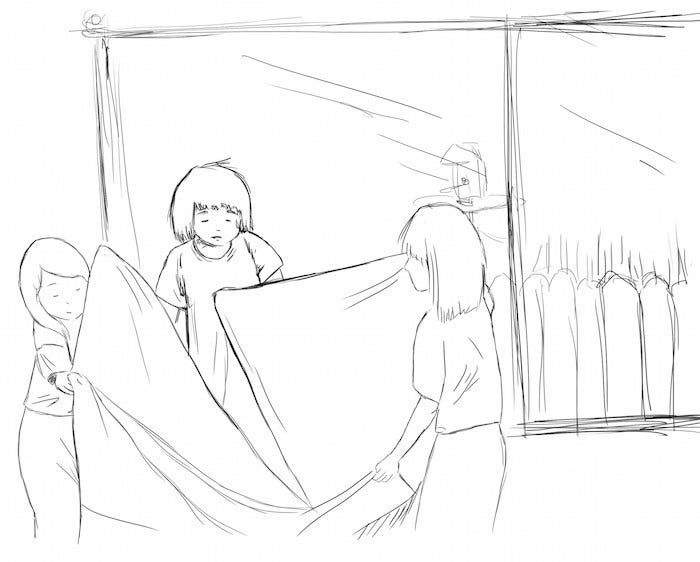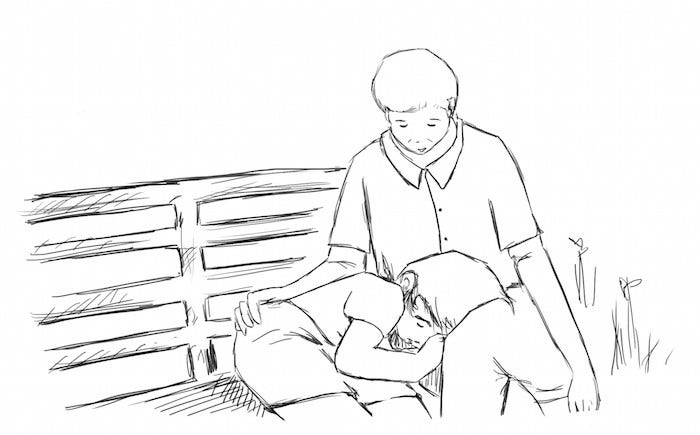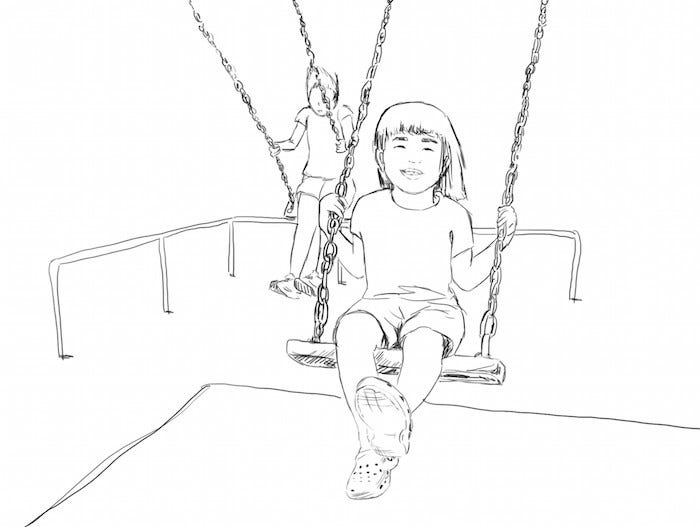The Easiest & Most Effective Way To Calm Your Anxious Mind
This daily habit is the best way to channel positive thinking.
 unsplash / katy belcher
unsplash / katy belcher Our mind and thoughts, when uncontrolled, can become our greatest liability and damage our psyche in ways that will significantly hurt our daily life, which is why we must train our mind to overcome these unconstructive thoughts.
What is chronicle journaling?
Chronicle journaling is a practice I have adopted to help shape the way I interpret my reality and frame my psychology to find joy and peace in times of dullness or melancholy.
But before I delve into the details, let me share with you my story on why I value and treasure this practice.
My grandma, Ayako, is among the most positive, strong, and independent people I know. She’s an incredibly strict woman, who I used to be terrified of, but as I grew older I’ve come to respect and value the wisdom she instilled in me at a young age.

My parents chose to raise my siblings and me in America, so we only visited her in Japan during the summer. I looked forward to seeing my grandmother, but she was also every small child’s nightmare. She would, without fail, make us do chores, practice reading in Japanese, and be active.
It was Ayako Boot Camp.

But one of my favorite activities we did together was to wake up really early and walk through the empty streets of Tokyo to the pond at the nearby Ueno Park. We would count the number of stray cats we found that morning on our way to the park, go on the swings, watch the turtles, say hi to the early-rising bakers and tofu shokunins, and eat clementines as we watched the sunrise over the pond.

One particularly bad morning, as we prepared to go on our ritualistic morning walk, I asked my grandmother if we could buy ice cream on the way back. It was getting hot, and we hadn’t had sweets in a long time so I felt that I could test my luck. She strictly said no, chastised me for wanting to eat ice cream before breakfast, and then commented on my unhealthy habits. It stung. Hard.
My mood now lousy, I dragged my feet on our walk, refused to laugh or participate in the counting cats game. As I watched my sisters happily giggle along with my grandma and have fun without me, my anger turned into sadness. I felt incredibly lonely.
When my grandmother noticed that I started crying, she came by my side and asked why I was so upset. I had a big, loud, angry speech prepared in my head, about how she is rude, uncaring, and terrible, but I suddenly forgot it all. Instead, we sat down on a bench and I cried into her arms, and she listened to my wails in silence. Once I was just about done letting out all my emotions, she held my hand and told me that she loved me, and I shouldn’t worry.

She justified that she couldn’t apologize for what she said, as she felt it was something I needed to hear and learn, but did not mean for those words to hurt as they did. She explained, “Saki, you must learn how to overcome these negative interpretations of what you hear and experience. Your mind and your thoughts misunderstand what happens around you, and you are going to end up hurting yourself more than you should ever need to. Your psyche is a muscle, and like how every muscle needs to be trained, you need to train your brain to adopt a positive outlook on what you hear and what happens to you.”
It was an emotional morning for me, so I remember the day well, but my young self didn’t quite understand what these words meant until I became older.
It was when I became more conscious of my anxious thoughts that I was able to comprehend that my grandmother was trying to teach me not that I was being irrational, but that these intrusive negative thoughts were something that I didn’t have to live with, and could learn to rewire, train, and overcome, for a growth mindset.
This is why I developed chronicle journaling, to help me.
To learn how to be more positive requires a bit of discipline and conscientious effort, but like working out and going to the gym, it is something that gets easier and better with time and continued effort. But to see results, you must put in the work, and you will reap the benefits of having a stable mindfulness.
What is chronicle journaling?
Chronicle journaling is a type of journaling that is focused on recounting your past but through a positive lens. Every day, you write down three good things that had happened to you that day, no matter how big or small. Events that made you happy, events that made you excited, or events that made you calm and find joy.
This mindfulness practice is used to focus on affirming thoughts and shift your psychology to interrupt anxious thoughts, prevent unproductive stress, and promote meaningful and quality work through calmness.
How to journal
You should focus on what made you happy, excited, and joyful that day, to develop a habit of defining a positive outlook on your future and past. Here are some starter tips:
Starter Tips
There is really no “wrong” way to chronicle journal, but some entries are more beneficial to reflect back on than others. Here is an example of an entry from last year that I would consider not as effective:

Entry:
1. Had lunch w/ papa @ Meatball place. I wish I got the “Kitchen Sink” but brunch options weren’t bad either ¯\_(ツ)_/¯
2. After lunch, went to Crate & Barrel to look at carpets + kitchenware and we also went to Urban Outfitter to look at clothes. Nice walk.
3. Are at Nippori (was quite crowded) & I had the sukiyaki pot. So warming. Pretty good. I like it when we go to Japanese restaurants.
Note how I don’t focus on my emotions and don’t address why I found the activity to be enjoyable. My voice is purely objective, and while it’s interesting to discover that this is something I did on this day, it doesn’t particularly bring up any strong positive emotions.
Here is an example of chronicle journaling that is much better:

Entry:
1. Cooked a salmon foil dinner for Kaira today! W/ enoki mushrooms, carrots, & roasted broccoli). It was actually super good & love it~ Plus, good bonding time in Fauver xx
2. Went to open swim today! And it was pretty great! I felt very accomplished just swimming & may be getting better? Hope!
3. Actually worked on ZTL a lot today. I hope to finish my remarkable content soon. Feeling accomplished though!! It’s coming along~ for big dreams!!!
Here, my tone is much more invested in my thoughts. The words reflect my joy and the excitement I felt for my future. I’m much more optimistic in my words, which helps me when I reflect on why I felt so excited, and identify the positive sources of energy in my life. I understand that spending time and investing in 1) friends, 2) swimming (a new skill I’m trying to work on), 3) ZTL (a passion project), is a specific source of joy for me, and I should be open to dedicating and focusing more of my energy with these things in my life.
The Takeaway:
However, don’t get bogged down by wanting to do it perfectly the first time around, because the important part of the exercise is to get started and enjoy the process. Focus on being consistent about the practice, because a little bit of writing today and enjoying the process is much better than making the practice a burden, which will eventually lead to abandonment.
You’ll find the benefits of chronicle journaling are greatest when you’re at your lowest points. When things are going well in life, the exercise seems almost pointless, but it is important to continue the practice because when you need the peace and positivity most, it’ll come easier.
As people don’t become marathon runners overnight, people don’t develop a working positive psyche overnight either. This mindfulness practice is used to focus on creating affirming thoughts, and shift into a joy-oriented psychology which will prevent unproductive stress, promote meaningful work, and open opportunities for adventure and love that would have previously been held back.

Kaki Okumura is a writer originally from Japan, and currently studying in the United States. She is the founder of Kakikata.
